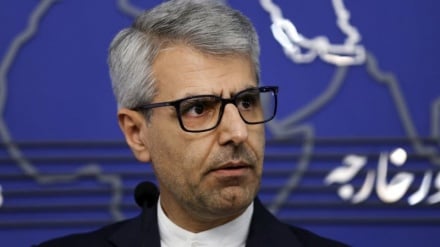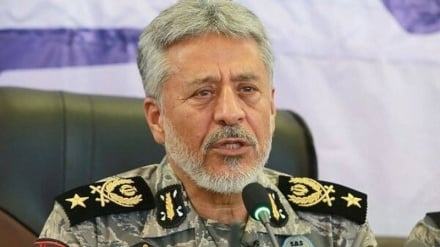What Trump’s Iran action means for Japan’s energy interests
The threats and theatrics against Iran, of Donald Trump the quixotic US president, if they prompt a misled Congress to impose a fresh set of unjust and illegal economic sanctions, which most world countries include European states are likely to reject, would present a dilemma for Washington’s ally Japan, in view of its extensive investments in Iran.
Now we have an analysis in this regard that appeared on the Global Research website; written by journalist Todd Crowell and titled “What Trump’s Iran action means for Japan’s energy interests?
Post-sanctions, Japan expanded its interests in Iranian oil, as well as other sectors. If the nuclear deal is scuttled by the US, don't expect Tokyo to acquiesce easily to a new set of sanctions.
Japan, though technically not a party to the Joint Comprehensive Plan of Action (JCPA), is a major importer of Iranian crude, and only reluctantly had agreed to freeze its trade and economic ties with Iran, under intense US pressure, which became a sore point in Washington-Tokyo relations. Japan had eventually cut imports drastically and relinquished its interests in several up-stream projects, such as the huge Azadegan oil field.
In 2015, with the deal concluded in Geneva and sanctions lifted on Iran, Tokyo naturally resumed its trade-economic ties with Tehran. Now Donald Trump is trying to throw a wrench by announcing that the US will not certify that Iran is complying with the terms of the agreement, despite the fact the IAEA has repeatedly confirmed that Iran is in compliance with the accord.
While it does not immediately follow that Congress, or any other party, will re-impose sanctions – thereby blowing up the deal – at the very least, Trump’s move introduces what consultants call a “country risk” to any deals. The country imposing the risk is the United States.
Much depends on what happens in the next few months, including whether Congress re-imposes sanctions or declares the agreement invalid. “What matters is how much the US government, the White House in particular, wants to force foreign firms out of Iran,” says Helima Croft of RBC Capital markets.
Tokyo was always a reluctant participant in the sanctions scheme. Having no petroleum resources of its own, Japan is almost entirely dependent on imports from the Middle East, and it was not inclined to put its economy in jeopardy by curtailing imports from Iran.
In September, while in New York to attend the United Nations General Assembly meeting, Prime Minister Shinzo Abe met Iran’s President Hassan Rouhani on the sidelines. He said that Japan fully supported maintaining the Iran nuclear deal.
Abe was not always so supportive of how the deal was made. While serving as chief cabinet secretary in 2006, he told a television interviewer that he doubted sanctions would be effective given the then relatively high price of crude. His cabinet mate Taro Aso also said Japan would not consider sanctions.
Under pressure from Washington, Japan slowly curtailed petroleum imports. It was excluded from a total ban by a special waiver allowing it to import some Iranian crude due to what was defined as special circumstances. (South Korea got a similar exemption.)
Now Japan feels free to expand its interests in Iran’s energy sector, not to mention other sectors of the economy even as Washington appears to want to keep the pressure on Iran for other purposes. The restraints are, for the time being, off.
Iran’s petroleum industry is gradually recovering from the impact of the sanctions. Exports, which fell to about 1 million barrels a day at the height of the sanctions, are now at a little over 3 million a day.
Iranian exports were up 60% in May, year-on-year, showing a major recovery, according to official reports. Tehran is said to be anxious to recover its place as Japan’s third supplier after Saudi Arabia, Abu Dhabi and Qatar.
Japan has, over the years, sought to increase its energy security by obtaining rights to petroleum reserves in the Middle East and Central Asia, a policy known as “Hinomaru oil” (Hinomaru means “rising sun flag”).
The crown jewel in this plan was the Azadegan oil field. Located in southwestern Iran near the Persian Gulf and the border with Iraq, it is considered to be potentially the largest oil field in the world, with proven reserves estimated to be 42 billion barrels.
Japan’s state-backed petroleum importer INPEX once owned a 70% stake in Azadegan. It was slowly pressured to completely divest itself, reducing its stake to 10%. And in 2010 it completely capitulated and withdrew from the project.
One of the things Tokyo feared most transpired when Tehran allowed the China National Petroleum Corp. to take over Japan’s stake. Unlike European and Japanese developers, which all pulled out of Iran projects, the Chinese stayed on. Happily for Japan, the Chinese did such a poor job that they were booted out, putting the field back into play.
INPEX has confirmed that it wants back into the Azadegan field, although it plans to bid in coordination with other international petroleum giants such as Royal Dutch Shell, BP, Total and Gazprom, to spread the political risk.
The final decision will be made probably early next year after evaluation of the conditions of the international bid and the “international situation,” said an INPEX spokesman quoted in the Japan Times. More than 10 companies could participate in the tender.
Throughout this period, Japan and Iran have maintained their historical good relations. Nooreddin Shahnazizadeh, the managing director of Iran’s Petroleum, Engineering and Development Corp greeted Japan’s return with no hard feelings.
“We understood Japan’s situation when they were forced to leave the project and now they are welcome again.” Iran is eager to get more Japanese investment and technical knowhow to help repair an economy impacted by the sanctions.
The Iran nuclear agreement had scarcely come into effect when, in February 2016, former Foreign Minister Fumio Kishida invited Tehran to send a delegation to Tokyo.
The upshot was a trade agreement and a line of credit from the Japan Bank for International Cooperation. The agreement allows for more Japanese investment in a post-sanctions economy and trading atmosphere.
Thus, if Trump’s actions should wind up scuttling the Iran nuclear deal, don’t expect Japan to be quite so accommodating as it was first time round with regard to any new sanctions regime.
AS/ME


